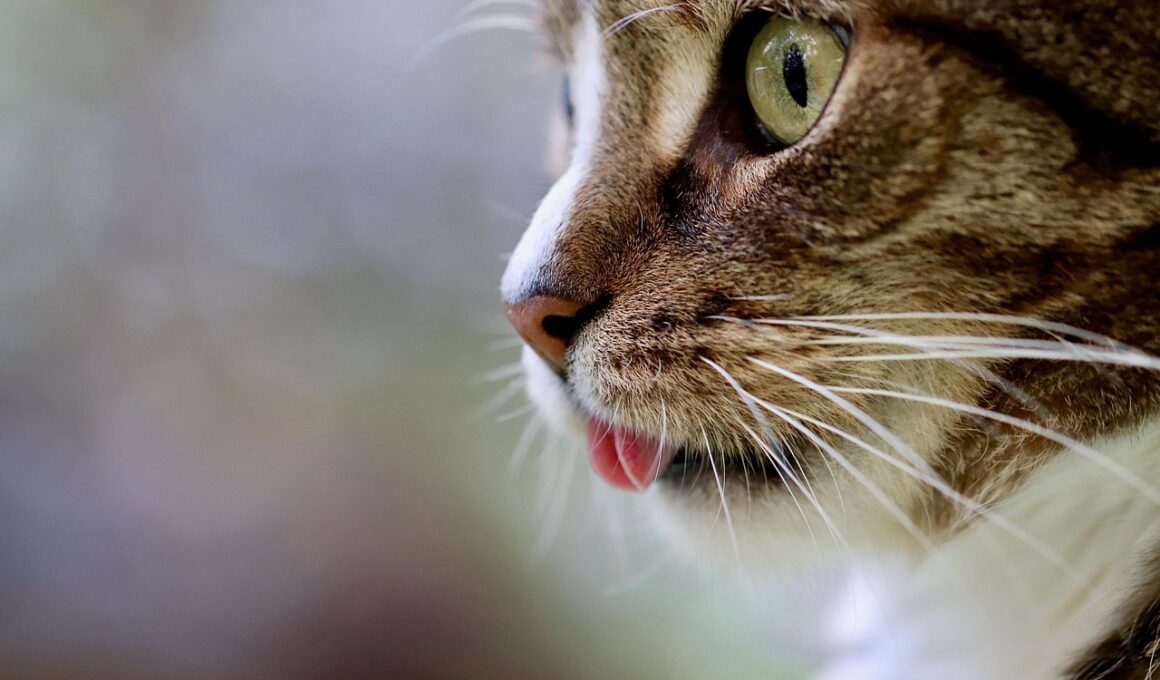Why Herd Immunity Matters for Cats in Our Communities
Understanding herd immunity is crucial for ensuring a healthy community for our cats. Herd immunity happens when a significant portion of a population becomes immune to a disease, making it difficult for the disease to spread. This concept is not just vital for human health but also applies to our feline friends. Cat vaccinations serve as the frontline defense against diseases such as feline leukemia and panleukopenia, which can be devastating. When the majority of cats are vaccinated, susceptible individuals, including kittens and older cats, are also protected indirectly. This forms a protective barrier throughout our communities, reducing the likelihood of outbreaks. Responsible pet owners must understand the tremendous impact their cat’s vaccination status has beyond their own household. By vaccinating your own cat, you contribute to the overall welfare of the feline population in your area. An informed community working together fosters a safe environment for cats. Engaging in educational programs can further spread awareness regarding vaccination importance. This communal effort ultimately affirms our commitment and care for our feline companions.
Recognizing the importance of vaccinations, we should prioritize educating ourselves on the recommended vaccination schedule for cats. Kittens generally require a series of vaccines that help them develop immunity. Initial vaccines may begin as early as six to eight weeks of age, followed by boosters every few weeks until they reach about sixteen weeks. Adult cats, depending on their lifestyle and risk factors, may then require vaccinations every one to three years. Vaccinations can prevent serious illnesses that might lead to critical health issues or even death. Additionally, some areas experience outbreaks of feline diseases, which can be detrimental to unvaccinated cats. It’s essential for cat owners to understand that not all vaccinations are created equal. Some vaccines are core vaccines, recommended universally for all cats, while others are non-core, recommended based on specific risk factors. Engaging with a veterinarian is the best way to tailor a vaccination schedule to your cat’s unique needs. Furthermore, discussing communal efforts for vaccinations among your community members can enhance the protection all cats receive collectively, fostering a healthier environment overall.
Vaccine-Preventable Diseases in Cats
Several diseases can be prevented through proper vaccination, highlighting why this process is essential. Feline panleukopenia is a severe disease that affects many unvaccinated cats. It attacks the immune system and can be fatal, particularly in young kittens. Vaccination is the best defense against this dreadful illness. Another significant disease is feline herpesvirus, which causes respiratory infections and can lead to chronic health problems. Vaccination helps inhibit the spread of the virus, protecting not only your cat but also others in the community. Feline calicivirus poses additional threats to cat health, often resulting in oral disease. Vaccination can significantly reduce the severity of symptoms and prevent the spread. Lastly, feline leukemia virus (FeLV) is a serious, often fatal disease that affects the cat’s immune system. Cats diagnosed with FeLV have lower life expectancies and suffer from recurrent infections. Vaccination is vital for protection against FeLV, especially in environments with dense cat populations. By vaccinating against these diseases, owners safeguard their cats and help maintain herd immunity, ensuring community safety and health.
Implementing wide-scale vaccination programs can further support herd immunity in our feline populations. Community clinics can focus on delivering accessible and affordable vaccination services for all cat owners, especially those with limited financial resources. Collaborating with local animal shelters and rescue groups can amplify awareness and encourage responsible pet ownership. On community days, free or low-cost vaccination events can draw in owners who might not otherwise vaccinate their cats. Additionally, social media campaigns can effectively communicate the importance of vaccinating cats and the consequences of neglecting vaccinations. Education sessions in local schools can also instill a sense of responsibility in future generations of pet owners. Highlighting success stories where community vaccination efforts have drastically reduced disease outbreaks can serve as motivation. Emphasizing herd immunity benefits can encourage participation and uplift community spirits towards a common goal—protecting our beloved feline companions. Further, regular updates on vaccination schedules and community events can keep everyone informed and engaged in the process. Community unity can lead to significant strides in enhancing feline health and welfare.
Understanding the Role of Community in Cat Vaccination
A close-knit community can effectively support the vaccination of cats through education and encouraging responsible pet ownership. Owners benefit from forming networking groups where they can share experiences and resources. These relationships strengthen community bonds and promote widespread understanding of vaccination importance. Local veterinarians play an instrumental role, providing information and answering concerns about vaccinations. By engaging veterinary professionals in community events, we can bridge the gap between information and action. It provides a platform for owners to discuss potential hesitations regarding vaccines openly. The establishment of community cat programs helps manage feral cat populations, promoting comprehensive vaccination for all cats in the area. Increasing accessibility to vaccines through these initiatives encourages community participation and care. Additionally, introducing communication channels such as newsletters or social media groups can keep cat owners informed about vaccination events. Creating a collective sense of responsibility can lead to collective benefits, improving not just individual cat health but also promoting overall community well-being. An informed and engaged community can cultivate a safer and healthier environment for feline companions everywhere.
It’s essential to address common misconceptions about cat vaccinations that might deter owners from participating. Some may believe that vaccinations are unnecessary after a cat reaches adulthood, but immunity wanes over time. Education relating to the necessity of regular vaccinations must emphasize the benefits of continuity. Others might think that cat reactions to vaccinations are common, whereas adverse effects are infrequent, typically mild, and temporary. Informing pet owners about what to expect can ease their concerns. Moreover, some individuals feel vaccines are too costly; however, the long-term expense related to treating preventable diseases can be far greater. Clearly communicating these facts can help mitigate such beliefs. Inviting former hesitant owners to share their positive experiences following vaccinations could serve as powerful testimonials. Hosting Q&A sessions with veterinarians can further address concerns and clarify misconceptions collaboratively within the community. It leads to better understanding and acceptance of vaccinations as a vital aspect of responsible cat ownership. Encouraging open dialogue about vaccinations creates an environment where owners feel supported in making informed decisions for their cats.
Final Thoughts on Cat Vaccinations and Herd Immunity
In conclusion, understanding the importance of herd immunity through cat vaccinations is paramount for maintaining healthy feline communities. The vaccination process protects individual cats and strengthens community resilience against outbreaks. Each cat that gets vaccinated contributes to the larger goal of herd immunity, which ensures that even those who are unprotected enjoy a layer of safety. Collective efforts through community initiatives and educational programs are key to achieving this goal. It’s vital for all cat owners to collaborate in ensuring their pets receive proper immunizations. Vigorous outreach programs should aim at educating the public about the health risks associated with unvaccinated cats. An informed community can dismantle misconceptions and foster a culture where vaccinations are a known necessity. Encouraging local veterinarians to engage actively with the community further reinforces these efforts. Ultimately, working together to promote cat vaccinations can lead to a healthier, happier, and thriving cat population. Becoming active participants in this journey fosters a safer environment for all cats, securing their well-being today and for future generations.
Together, we can create a vibrant shared commitment to the health and safety of our beloved feline friends by actively promoting vaccination and herd immunity.


